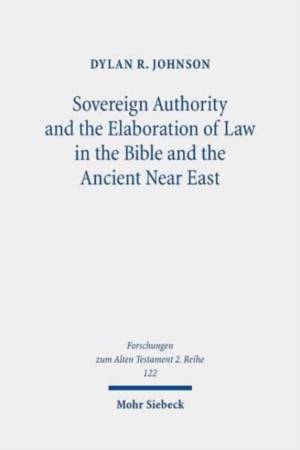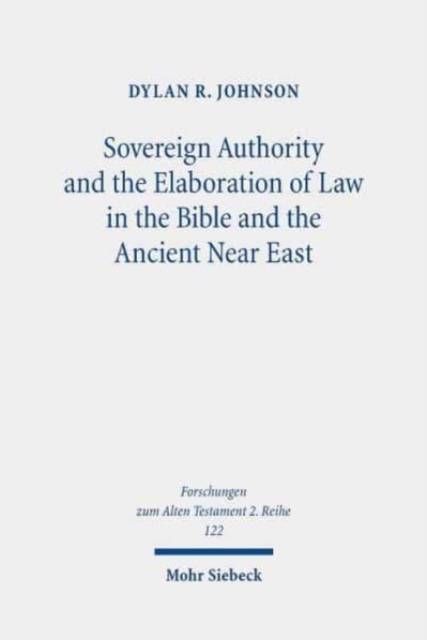
- Afhalen na 1 uur in een winkel met voorraad
- Gratis thuislevering in België vanaf € 30
- Ruim aanbod met 7 miljoen producten
- Afhalen na 1 uur in een winkel met voorraad
- Gratis thuislevering in België vanaf € 30
- Ruim aanbod met 7 miljoen producten
Zoeken
Sovereign Authority and the Elaboration of Law in the Bible and the Ancient Near East
Dylan R Johnson
€ 209,45
+ 418 punten
Omschrijving
Five Pentateuchal texts (Lev 24:10-23; Num 9:6-14; Num 15:32-36; Num 27:1-11; Num 36:1-12) offer unique visions of the elaboration of law in Israel's formative past. In response to individual legal cases, Yahweh enacts impersonal and general statutes reminiscent of biblical and ancient Near Eastern law collections. From the perspective of comparative law, Dylan R. Johnson proposes a new understanding of these texts as biblical rescripts: a legislative technique that enabled sovereigns to enact general laws on the basis of particular legal cases. Typological parallels drawn from cuneiform and Roman law illustrate the complex ideology informing the content and the form of these five cases. The author explores how latent conceptions of law, justice, and legislative sovereignty shaped these texts, and how the Priestly vision of law interacted with and transformed earlier legal traditions.
Specificaties
Betrokkenen
- Auteur(s):
- Uitgeverij:
Inhoud
- Aantal bladzijden:
- 383
- Taal:
- Engels
- Reeks:
- Reeksnummer:
- nr. 122
Eigenschappen
- Productcode (EAN):
- 9783161595097
- Verschijningsdatum:
- 1/08/2020
- Uitvoering:
- Paperback
- Formaat:
- Trade paperback (VS)
- Afmetingen:
- 231 mm x 155 mm
- Gewicht:
- 575 g

Alleen bij Standaard Boekhandel
+ 418 punten op je klantenkaart van Standaard Boekhandel
Beoordelingen
We publiceren alleen reviews die voldoen aan de voorwaarden voor reviews. Bekijk onze voorwaarden voor reviews.











